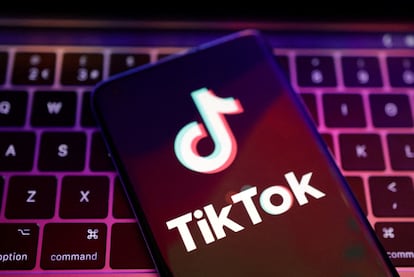TikTok spied on ‘Forbes’ journalists investigating the social network in the US
An internal investigation by parent company ByteDance confirms that employees obtained personal data from reporters who were probing Beijing’s influence on the app’s activities


ByteDance, the Chinese technology giant that owns TikTok, admitted Thursday that several employees of the social network spied on journalists from Forbes magazine who were investigating the link between the company’s US branch and China. The information first came to light in October but was confirmed on December 23 by Forbes, which had access to an internal investigation carried out by ByteDance. Forbes claims that, following the scandal, the Chinese company fired its internal auditor.
The internal investigation became known within ByteDance as Project Raven. It was initiated after Buzzfeed published a series of reports claiming that TikTok employees had gained access to the personal information of several users in the US. The company did not deny these reports but issued a statement saying that TikTok had no intention of spying on government officials, activists, public figures or journalists.
But this was not the case, as the internal investigation revealed. Journalists Emily Baker-White, Katharine Schwab and Richard Nieva, formerly of Buzzfeed and now employed by Forbes, were spied on. The company’s probe, however, does not identify the reporters and merely admits that its employees obtained information “from a former BuzzFeed reporter and a Financial Times journalist” through their TikTok accounts, in addition to a “small group related to the journalists.”
The reporters were part of a research team documenting the exponential growth of TikTok in the United States due to its popularity among Gen Z users. Among the conclusions of their work is that TikTok hired more than 300 propaganda specialists from Chinese state media companies, that the company has engaged in industrial espionage practices and that TikTok’s day-to-day strategy in the US is still dictated by Beijing, which has led to an exodus of senior executives.
According to Forbes, the spying targeted sources who were feeding the reporting thread. After the lid was lifted on the scheme, ByteDance fired Chris Lepitak, who was in charge of conducting internal audits within the company. His supervisor, Song Ye, who reported directly to ByteDance’s CEO, also resigned after the scandal broke. The company has also fired two other employees, one in the United States and one in China.
Confirmation of espionage against journalists comes amid growing tension between US authorities and TikTok. Several senators, including Democrat Mark Warner, have upped pressure on the US Department of Justice to announce a plan to shield the information of TikTok users. If this does not materialize quickly, Warner said, Congress will fill the vacuum itself by voting on a series of protective measures.
Some US states have already taken unilateral action to prevent user data from ending up in Chinese hands. At least 14 entities have prohibited TikTok from being downloaded on official phones, a ban that could soon apply to federal government officials once a bill regulating access to the social network - which has both Democratic and Republican backing - is voted on in Congress. Meanwhile, the Indiana legislature has sued TikTok over security flaws, misleading advertising and endangering underage users, who the lawsuit says may be exposed to adult content on the platform.
Sign up for our weekly newsletter to get more English-language news coverage from EL PAÍS USA Edition
Tu suscripción se está usando en otro dispositivo
¿Quieres añadir otro usuario a tu suscripción?
Si continúas leyendo en este dispositivo, no se podrá leer en el otro.
FlechaTu suscripción se está usando en otro dispositivo y solo puedes acceder a EL PAÍS desde un dispositivo a la vez.
Si quieres compartir tu cuenta, cambia tu suscripción a la modalidad Premium, así podrás añadir otro usuario. Cada uno accederá con su propia cuenta de email, lo que os permitirá personalizar vuestra experiencia en EL PAÍS.
¿Tienes una suscripción de empresa? Accede aquí para contratar más cuentas.
En el caso de no saber quién está usando tu cuenta, te recomendamos cambiar tu contraseña aquí.
Si decides continuar compartiendo tu cuenta, este mensaje se mostrará en tu dispositivo y en el de la otra persona que está usando tu cuenta de forma indefinida, afectando a tu experiencia de lectura. Puedes consultar aquí los términos y condiciones de la suscripción digital.








































